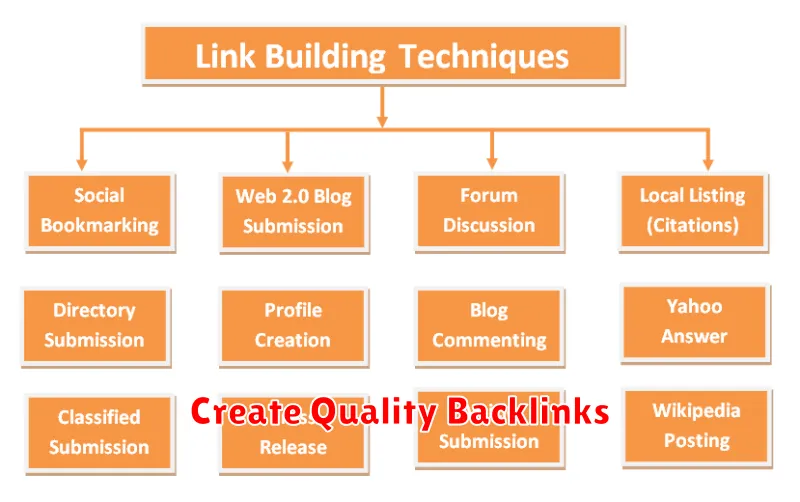In today’s digital landscape, a strong online presence is crucial for any business or individual seeking visibility and success. Understanding how to improve your Google search rankings is paramount to achieving this goal. This article will provide a comprehensive guide to optimizing your website and content for higher visibility in Google search results. We’ll explore the key factors that influence search engine rankings, including keyword research, on-page optimization, off-page optimization, and technical SEO. By implementing the strategies outlined here, you can significantly increase your chances of ranking higher, driving more organic traffic to your website, and ultimately achieving your online objectives. We’ll delve into the importance of a mobile-friendly website, the impact of high-quality content, and the role of user experience in determining your search engine visibility.
Whether you are a seasoned SEO professional or just starting your journey in search engine optimization, this guide offers valuable insights and actionable steps to enhance your Google search rankings. Learn how to effectively use keywords to target your desired audience, understand the significance of backlinks and domain authority, and gain a thorough understanding of how search engines work. We’ll cover best practices for content creation, link building, and technical website optimization. Mastering these techniques will not only boost your website’s visibility but also establish your online presence as a credible and authoritative source within your niche. Join us as we unlock the secrets to improving your Google search rankings and maximizing your online potential.
Understand Google’s Ranking Factors
Google uses a complex algorithm to rank websites. While the exact formula is a closely guarded secret, Google does provide some guidance on the key factors it considers.
Understanding these factors is crucial for improving your search rankings. Relevance is paramount. Google wants to serve users the most relevant results for their search queries. This means your website’s content must align with what users are searching for.
Authority is another important factor. Google assesses authority based on the number and quality of backlinks pointing to your website. Earning backlinks from reputable and relevant sites signals to Google that your website is a trustworthy source of information.
User experience also plays a significant role. Google wants to ensure users have a positive experience on the websites it ranks. Factors such as page load speed, mobile-friendliness, and clear navigation contribute to a good user experience.
While these are some of the most important factors, Google considers hundreds of signals when ranking websites. Staying informed about Google’s best practices and algorithm updates is essential for long-term success in search rankings.
Optimize On-Page SEO

On-page SEO refers to all the measures you can take directly within your website to improve its position in search rankings. It’s crucial for ensuring search engines understand your content and deem it relevant to user queries.
Key elements of on-page SEO include:
- Title Tags: Craft compelling and accurate titles that incorporate relevant keywords.
- Meta Descriptions: Write concise and informative descriptions to encourage clicks from search results.
- Header Tags (H1-H6): Structure your content logically using header tags to highlight important sections and improve readability.
- Image Optimization: Use descriptive alt text for images to help search engines understand their context.
- Keyword Optimization: Naturally incorporate relevant keywords within your content, but avoid keyword stuffing.
- URL Optimization: Create short, descriptive URLs that are easy to understand.
- Content Quality: Publish high-quality, informative, and engaging content that satisfies user intent.
By optimizing these on-page factors, you can significantly improve your website’s visibility in search engine results pages (SERPs).
Create Quality Backlinks

Backlinks, also known as inbound links, are links from other websites to your website. They are a crucial factor in Google’s ranking algorithm. Search engines interpret backlinks as votes of confidence, indicating that your content is valuable and authoritative.
Focus on acquiring high-quality backlinks from reputable and relevant websites within your industry. Low-quality backlinks from spammy or irrelevant sites can actually harm your rankings.
Some effective strategies for building quality backlinks include:
- Guest blogging: Contribute valuable content to other websites in your niche.
- Broken link building: Identify broken links on relevant websites and suggest your content as a replacement.
- Content marketing: Create high-quality, shareable content that naturally attracts backlinks.
Avoid participating in link schemes or buying backlinks, as these practices can lead to penalties from Google.
Improve Site Speed and Mobile UX

Site speed and mobile user experience (UX) are crucial ranking factors. Google prioritizes websites that offer a seamless and fast browsing experience, especially on mobile devices. Slow-loading sites frustrate users and lead to higher bounce rates, negatively impacting your search visibility.
To optimize site speed, consider these key strategies:
- Optimize images: Compress images without significant quality loss to reduce file sizes.
- Leverage browser caching: Allow browsers to store static resources, speeding up subsequent page loads.
- Minify CSS and JavaScript: Remove unnecessary characters from code files to improve download speeds.
For mobile UX, ensure your site is responsive and adapts to different screen sizes. A mobile-first approach is essential. Consider using Google’s Mobile-Friendly Test to assess your site’s mobile compatibility and identify areas for improvement.
Use Structured Data Markup
Structured data markup helps search engines understand the content on your web pages. It provides context and meaning to your content, allowing Google to better interpret and classify your information. This can lead to rich results, which are enhanced search listings that stand out and provide more information directly on the search results page. Implementing structured data can significantly improve your click-through rate.
Several formats are available for structured data, including JSON-LD (JavaScript Object Notation for Linked Data), which is generally recommended due to its ease of implementation and readability. Other formats include Microdata and RDFa. Choose the format that best suits your technical capabilities and website structure.
Different schema types are available for various content types, such as articles, products, recipes, and events. Using the appropriate schema type for your content ensures that search engines accurately interpret and present your information in search results. Ensure you validate your structured data after implementation using Google’s Rich Results Test tool. This tool helps identify any errors and ensures your markup is correctly implemented.
Monitor Ranking Changes with Tools
Tracking your keyword ranking changes is crucial to understanding the impact of your SEO efforts. Utilizing rank tracking tools allows you to monitor your progress and identify areas for improvement.
These tools provide valuable data on how your website performs for targeted keywords in search engine results pages (SERPs). They offer insights into which optimization strategies are effective and which require adjustments. This data-driven approach ensures you are continuously improving your website’s visibility.
Key features to look for in a rank tracking tool include:
- Keyword rank tracking: Monitor your website’s position for target keywords.
- Competitor analysis: Track your competitors’ rankings for the same keywords.
- Reporting and analytics: Generate reports to visualize ranking progress and identify trends.
- Local rank tracking (if applicable): Track your rankings within specific geographic areas.
By leveraging these tools and consistently monitoring your rankings, you can make informed decisions about your SEO strategy and ultimately improve your visibility in search results.
Avoid Keyword Stuffing
Keyword stuffing is the practice of overusing keywords within a webpage’s content in an attempt to manipulate search engine rankings. This involves inserting keywords unnaturally, often to the detriment of readability and user experience.
Search engines like Google are sophisticated enough to detect keyword stuffing and may penalize websites that engage in this practice. Penalties can range from lower rankings to complete removal from search results. Instead of keyword stuffing, focus on creating high-quality, informative content that naturally incorporates relevant keywords.
Best practices for keyword usage include:
- Using keywords in a way that sounds natural and flows with the text.
- Focusing on providing value to the reader rather than manipulating search algorithms.
- Using synonyms and related terms to broaden your keyword reach without being repetitive.

